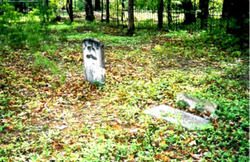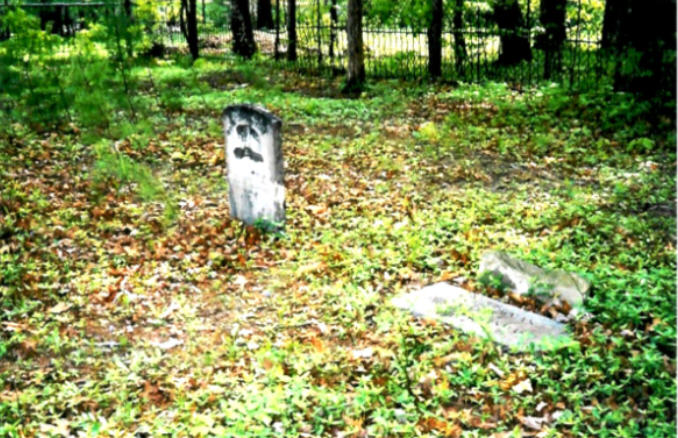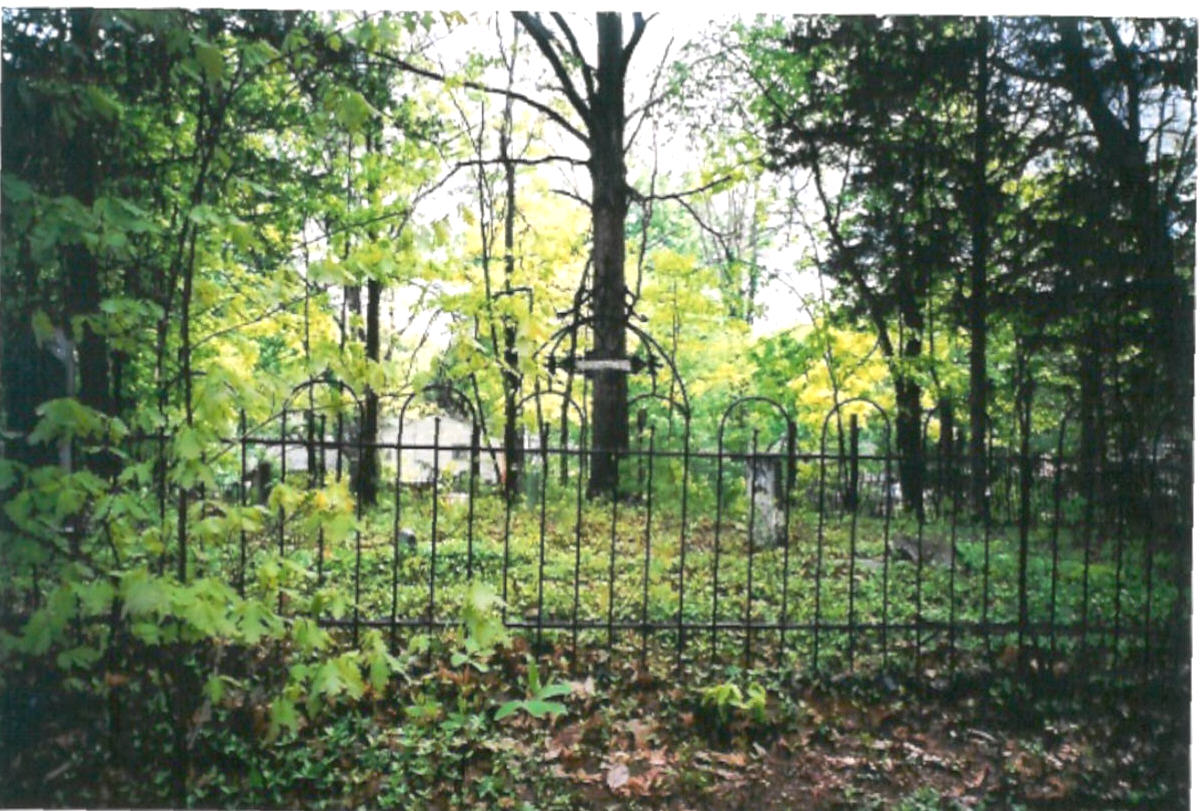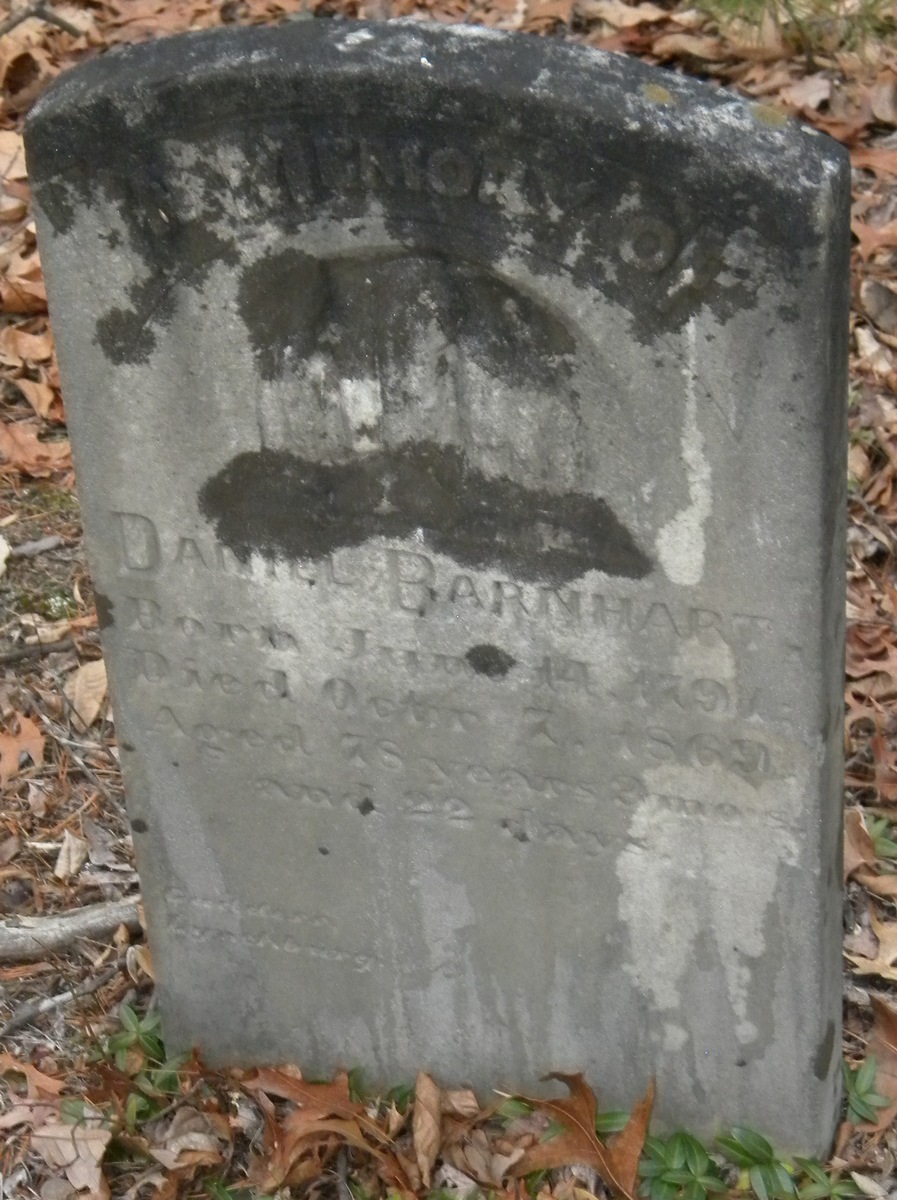THE BARNHART TAVERN-
Daniel III also kept a country tavern, which in those days was quite common. Tavern is a term used in England for several centuries and in America during the pioneer days meaning a place for rest and refreshment for the weary traveler, and not a place for the sale of alcoholic beverages as is the custom at present in the US.
The Barnhart Tavern was located (as near as records show) on a much traveled route extending from Knoxville, TN, passing Daniel's home two miles east of Salem, VA on to Washington, D.C. thence to Baltimore, Maryland, to Philadelphia and New York City and on into the New England States. Here came the elite of the land, Governors, US Senators on their way to the sessions of Congress at Washington D.C.
Many pleasant evenings were passed in Daniel's tavern. Here came the elite of the land; Governors, United States Senators on their way to the sessions of Congress at Washington.
A Union general made his headquarters here during the Civil War. Prominent men from all walks of life came on horseback. Some came by stage for there were no railroads or automobiles. Only the rich aristocrats were privileged to own their own family coach with the coachman and footman.
Much freight passed up and down this road. It was a common sight to see heavy wagons drawn by six horse teams passing by, the driver astride the lead horse of the rear team and driving the other teams with a single line, a custom long since forgotten. The "Wagoner's" as they were called went to the wholesale houses at Lynchburg for supplies for merchants throughout the southwest. Often these people stopped at the tavern.
Fine Food-
The congeniality of Daniel and the fine food always found on his table added to the popularity of the place. Here in his large home of many rooms, he had set aside some of them for the accommodation of the traveling public. The meals were exquisite. Hot bisquits for breakfast, meat three times a day and pie twice a day was a must. Placed on the table for the choice of each guest were several kinds of preserves, cider-apple butter, peach butter and other delicacies.
Most of the goods were processed on the plantation. With chickens, geese, ducks and turkeys; cattle, hogs and sheep and corn from the plantation of 400 acres to fatten the pork and beef, there were delicious steaks and chops in abundance.
We of the city can appreciate that a "Garden of Eden" really existed here. Much fruit was at hand from the fine apple, peach, cherry, plum and pear orchards. Fruit was canned or stored in the cellar, for winter or spring use, or picked ripe from the trees. There were all kinds of berries in season.
Daniel, being a Hollander, his garden vegetables were famous for crispness. His sugar cured hickory smoked hams were no less famous, also the fresh country pork sausage, headcheese, and not to forget the good sauerkraut. With the fine cooking of the women folk, Daniel's tavern was popular.
The rapid construction of railroads in America in the middle of the 18th century and one through Salem about 1850 and another shortly afterwards put an end to further need for the Barnhart Tavern.
THE BARNHART HOME-
The Barnhart homestead is located a few miles south of Salem.
In 1937 a Mr. Taylor Rogers bought the old home and about
80 acres surrounding it. The original deed to the farm showed
that it had at one time consisted of over 500 acres. When
Mr. Rogers acquired the property, the home (built of split logs)
was in some disrepair. He tore down the house and very carefully
rebuilt over the original foundation, even attempting to follow
the same room plans. ( the house is now 130' long) The beamed
ceiling in the den is made entirely from beams taken from the
original house. Mr. and Mrs. Rogers were very interested in the
history of the old home and carefully retained portions of the split
logs which contained pen knife carvings. These he placed at the entrance to the new home.
It is interesting to note that the Barnhart home had many rooms in order to accommodate a large family of eleven boys and eleven girls but contained only two large rooms on the second floor, one room for the boys and one for the girls. Both rooms had their own enclosed stairway at the ends of the rooms. There was no connecting door between the two rooms.
Daniel seems to have followed the building instincts of many of his Dutch ancestors. His large home, barns, and fine spring house built near the kitchen, and other buildings attest to this fact.
EXAMPLE OF FAMILY LIFE-
Here is an example of a happy family clicking on a large scale. Let us turn back a century and visit this splendid household. Rising at 5:00 a.m. during busy seasons while there was much work to do and no modern conveniences, we see the deep sincerity of Daniel as he daily gathers his family around him, all on bended knees while he implores guidance and blessings on all. Then each child (of proper age) goes to his several tasks. We find the daughters either carding wool, weaving cloth in the loom-house for the family attire or aiding in the household duties; processing food, knitting, sewing; and sometimes they helped to work their splendid family garden. The sons went to the fields to their farming tasks. Here much work lay before them on their plantation of more than 400 acres. Throughout the valley most prominent men owned many negro slaves to do all their work. Some nearly a hundred. These plantations were in great contrast to the Barnhart plantation where only the free man labored.
WAR IN 1814-
In 1814, when the British Army marched into Washington, D.C. and set fire to the White House and our Capitol building, Daniel and thousands of other citizens of Virginia rushed to register for Military Service to help drive the enemy from our soil. The day before he was to join his company, he was seriously injured by falling from a high scaffold. Before he recovered General Andrew Jackson had defeated the British at the famous battle of New Orleans and the war was over.
UPRIGHT PERSON AND MINISTIER-
In the lives of all great men, we find some special motive power that has forced them to the pinnacle of their greatness. Hence we look for the power back of the life of this great pioneer, Daniel III. From documentary evidence and other known facts we must conclude he was a religious enthusiast, but not a radical. He lived his religion and was respected by all who knew him. A Mrs. Snyder of Salem (historian of that area) stated, "The Daniel Barnhart Family were honest, upright people, and credit to any community."
Daniel was called to the ministry of the Salem Church of the Brethren and later became Elder of that church. For many years he served as minister and bishop in the Church of the Brethren of which he and his two wives, and others of the family were members. His first wife, Eva Bowman, was a sister of Rev. John Bowman, one of the great preachers of his time.
It is cheering to know that in more than a century no offspring of Daniel's has ever found its name recorded in any criminal court. (as of 1953 when this information was gathered.)
CHURCH OF THE BRETHREN 1845 ANNUAL CONFERENCE-
In 1845 the annual conference of the Church of the Brethren was
held at the home of Daniel III. The minutes of this meeting remain
and testify to Daniels beliefs. One item that stands out is his
writings that all church members are totally equal, Negro and
White. Daniel believed work was a God given virtue, no slave
ever labored on his plantation. He refused to traffic in human
slavery believing it to be a blot on the fair name of the new nation.
DEATH OF DANIEL III AND CATHERINE-
Daniel III passed on in 1869 at the age of 78. He had been called to leadership in early manhood. For more than fifty years this Godly man had taught others to live pure and holy lives. Now he lay down to rest. He was gone, but his memory lives on.
Records show more than a score (12) of his descendents were called to the ministry of the Church of the Brethren and four of these were his own sons.
He was the father of a total of 22 children. Tombstone inscription: In Memory of Daniel Barnhart born June 14, 1791. Died October 7, 1869 age 78 years 3 mo and 22 days. Soon after his death, the estate was sold to a Mr. Byrd and the proceeds divided among his heirs.
Catherine Brubaker-Barnhart died in 1867. She was a woman of admirable character. She had become the wife of Daniel after the passing of Eva Bowman, taking over the managing of Daniel's large family. She not only successfully and kindly trained the children, but became the mother of nine sons and two daughters.
Cemetery Location: Salem/ Roanoke VA. Rt 220 to Electric Rd.(419), sharp right on McVitty Rd., left on Keithwood Dr. SW, left of Bruceton Rd SW, left of Mt. Holland Dr SW. Cemetery on dead end street.
THE BARNHART TAVERN-
Daniel III also kept a country tavern, which in those days was quite common. Tavern is a term used in England for several centuries and in America during the pioneer days meaning a place for rest and refreshment for the weary traveler, and not a place for the sale of alcoholic beverages as is the custom at present in the US.
The Barnhart Tavern was located (as near as records show) on a much traveled route extending from Knoxville, TN, passing Daniel's home two miles east of Salem, VA on to Washington, D.C. thence to Baltimore, Maryland, to Philadelphia and New York City and on into the New England States. Here came the elite of the land, Governors, US Senators on their way to the sessions of Congress at Washington D.C.
Many pleasant evenings were passed in Daniel's tavern. Here came the elite of the land; Governors, United States Senators on their way to the sessions of Congress at Washington.
A Union general made his headquarters here during the Civil War. Prominent men from all walks of life came on horseback. Some came by stage for there were no railroads or automobiles. Only the rich aristocrats were privileged to own their own family coach with the coachman and footman.
Much freight passed up and down this road. It was a common sight to see heavy wagons drawn by six horse teams passing by, the driver astride the lead horse of the rear team and driving the other teams with a single line, a custom long since forgotten. The "Wagoner's" as they were called went to the wholesale houses at Lynchburg for supplies for merchants throughout the southwest. Often these people stopped at the tavern.
Fine Food-
The congeniality of Daniel and the fine food always found on his table added to the popularity of the place. Here in his large home of many rooms, he had set aside some of them for the accommodation of the traveling public. The meals were exquisite. Hot bisquits for breakfast, meat three times a day and pie twice a day was a must. Placed on the table for the choice of each guest were several kinds of preserves, cider-apple butter, peach butter and other delicacies.
Most of the goods were processed on the plantation. With chickens, geese, ducks and turkeys; cattle, hogs and sheep and corn from the plantation of 400 acres to fatten the pork and beef, there were delicious steaks and chops in abundance.
We of the city can appreciate that a "Garden of Eden" really existed here. Much fruit was at hand from the fine apple, peach, cherry, plum and pear orchards. Fruit was canned or stored in the cellar, for winter or spring use, or picked ripe from the trees. There were all kinds of berries in season.
Daniel, being a Hollander, his garden vegetables were famous for crispness. His sugar cured hickory smoked hams were no less famous, also the fresh country pork sausage, headcheese, and not to forget the good sauerkraut. With the fine cooking of the women folk, Daniel's tavern was popular.
The rapid construction of railroads in America in the middle of the 18th century and one through Salem about 1850 and another shortly afterwards put an end to further need for the Barnhart Tavern.
THE BARNHART HOME-
The Barnhart homestead is located a few miles south of Salem.
In 1937 a Mr. Taylor Rogers bought the old home and about
80 acres surrounding it. The original deed to the farm showed
that it had at one time consisted of over 500 acres. When
Mr. Rogers acquired the property, the home (built of split logs)
was in some disrepair. He tore down the house and very carefully
rebuilt over the original foundation, even attempting to follow
the same room plans. ( the house is now 130' long) The beamed
ceiling in the den is made entirely from beams taken from the
original house. Mr. and Mrs. Rogers were very interested in the
history of the old home and carefully retained portions of the split
logs which contained pen knife carvings. These he placed at the entrance to the new home.
It is interesting to note that the Barnhart home had many rooms in order to accommodate a large family of eleven boys and eleven girls but contained only two large rooms on the second floor, one room for the boys and one for the girls. Both rooms had their own enclosed stairway at the ends of the rooms. There was no connecting door between the two rooms.
Daniel seems to have followed the building instincts of many of his Dutch ancestors. His large home, barns, and fine spring house built near the kitchen, and other buildings attest to this fact.
EXAMPLE OF FAMILY LIFE-
Here is an example of a happy family clicking on a large scale. Let us turn back a century and visit this splendid household. Rising at 5:00 a.m. during busy seasons while there was much work to do and no modern conveniences, we see the deep sincerity of Daniel as he daily gathers his family around him, all on bended knees while he implores guidance and blessings on all. Then each child (of proper age) goes to his several tasks. We find the daughters either carding wool, weaving cloth in the loom-house for the family attire or aiding in the household duties; processing food, knitting, sewing; and sometimes they helped to work their splendid family garden. The sons went to the fields to their farming tasks. Here much work lay before them on their plantation of more than 400 acres. Throughout the valley most prominent men owned many negro slaves to do all their work. Some nearly a hundred. These plantations were in great contrast to the Barnhart plantation where only the free man labored.
WAR IN 1814-
In 1814, when the British Army marched into Washington, D.C. and set fire to the White House and our Capitol building, Daniel and thousands of other citizens of Virginia rushed to register for Military Service to help drive the enemy from our soil. The day before he was to join his company, he was seriously injured by falling from a high scaffold. Before he recovered General Andrew Jackson had defeated the British at the famous battle of New Orleans and the war was over.
UPRIGHT PERSON AND MINISTIER-
In the lives of all great men, we find some special motive power that has forced them to the pinnacle of their greatness. Hence we look for the power back of the life of this great pioneer, Daniel III. From documentary evidence and other known facts we must conclude he was a religious enthusiast, but not a radical. He lived his religion and was respected by all who knew him. A Mrs. Snyder of Salem (historian of that area) stated, "The Daniel Barnhart Family were honest, upright people, and credit to any community."
Daniel was called to the ministry of the Salem Church of the Brethren and later became Elder of that church. For many years he served as minister and bishop in the Church of the Brethren of which he and his two wives, and others of the family were members. His first wife, Eva Bowman, was a sister of Rev. John Bowman, one of the great preachers of his time.
It is cheering to know that in more than a century no offspring of Daniel's has ever found its name recorded in any criminal court. (as of 1953 when this information was gathered.)
CHURCH OF THE BRETHREN 1845 ANNUAL CONFERENCE-
In 1845 the annual conference of the Church of the Brethren was
held at the home of Daniel III. The minutes of this meeting remain
and testify to Daniels beliefs. One item that stands out is his
writings that all church members are totally equal, Negro and
White. Daniel believed work was a God given virtue, no slave
ever labored on his plantation. He refused to traffic in human
slavery believing it to be a blot on the fair name of the new nation.
DEATH OF DANIEL III AND CATHERINE-
Daniel III passed on in 1869 at the age of 78. He had been called to leadership in early manhood. For more than fifty years this Godly man had taught others to live pure and holy lives. Now he lay down to rest. He was gone, but his memory lives on.
Records show more than a score (12) of his descendents were called to the ministry of the Church of the Brethren and four of these were his own sons.
He was the father of a total of 22 children. Tombstone inscription: In Memory of Daniel Barnhart born June 14, 1791. Died October 7, 1869 age 78 years 3 mo and 22 days. Soon after his death, the estate was sold to a Mr. Byrd and the proceeds divided among his heirs.
Catherine Brubaker-Barnhart died in 1867. She was a woman of admirable character. She had become the wife of Daniel after the passing of Eva Bowman, taking over the managing of Daniel's large family. She not only successfully and kindly trained the children, but became the mother of nine sons and two daughters.
Cemetery Location: Salem/ Roanoke VA. Rt 220 to Electric Rd.(419), sharp right on McVitty Rd., left on Keithwood Dr. SW, left of Bruceton Rd SW, left of Mt. Holland Dr SW. Cemetery on dead end street.
Family Members
-
Infant Barnhart
1812–1812
-
Elizabeth Barnhart Frantz
1812–1868
-
Lydia Barnhart Naff
1814–1890
-
![]()
Hannah Barnhart Grisso
1815–1883
-
![]()
Susannah Barnhart Flora
1818–1902
-
Frances "Fanny" Barnhart Grisso
1820–1893
-
![]()
Joel Barnhart
1822–1901
-
![]()
Nancy Barnhart Coon
1827–1893
-
![]()
John Barnhart
1830–1917
-
![]()
Daniel Brubaker Barnhart
1836–1921
-
![]()
Anthony Barnhart
1837–1923
-
![]()
Elias Barnhart
1841–1862
-
Benjamin Barnhart
1843–1865
-
![]()
PVT Benjamin Barnhardt
1844–1865
-
![]()
Rev Jeremiah Barnhart
1844–1907
-
![]()
Josiah Barnhart
1844–1928
-
![]()
Christian Barnhart
1847–1927
-
![]()
Margaret Barnhart Peters
1850–1876
Advertisement
Explore more
Sponsored by Ancestry
Advertisement



















